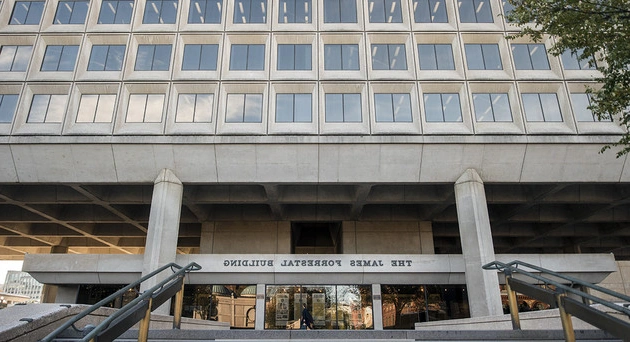
The Department of Energy’s Controversial Decision
The Trump administration is seeking to rescind key civil rights protections for sex discrimination in sports and education programs through a swift regulatory process at an unlikely agency: the Department of Energy.
Buried in a list of more than three dozen regulation changes published in May, the DOE is moving to rescind regulations that oversee sports participation and sex discrimination protections for students in education programs. The direct final rules align with a series of executive orders signed by President Donald Trump earlier this year that seek to ban transgender athletes from women’s sports and one that proclaimed there are only two sexes — male and female.
Implications for Title IX Compliance
While DOE isn’t the main enforcer of Title IX, the federal education law that bars sex-based discrimination, the agency’s Office of Economic Impact and Diversity monitors and enforces compliance among educational programs at institutions that receive federal funds or grants from the agency. The office has long used the law to close the gap between men and women in science, technology, engineering and mathematics fields, and the agency’s Office of Civil Rights investigates sex-based discrimination.
Civil rights advocates argue the agency is circumventing the traditional notice and comment rulemaking process to remove protections that have been around for decades under Title IX. They’re concerned about the precedent it could set for how other agencies overhaul their civil rights enforcement guidelines, especially since more than two dozen agencies enforce Title IX.
The Role of Energy Department
“If this is successful, it really creates a blueprint for dismantling civil rights protections across the board while flying under the radar,” said Kel O’Hara, senior attorney for policy and education equity at Equal Rights Advocates, a nonprofit legal organization that aims to protect women and people of all gender identities nationwide.
The Energy Department did not respond to a request for comment.
How does Energy even play a role here?: DOE is using a direct final rule, a regulatory process reserved for noncontroversial rules the agency believes are unlikely to receive significant adverse comments. Patel said the process does not apply to regulations around Title IX.
More than 2,100 comments have been submitted on the athletics rule and more than 8,200 comments have been submitted on the rule on education programs as of Monday afternoon. But comments submitted on the regulation have been unable to be publicly viewed.
Public Response and Potential Impact
The Education Department — which is a major enforcer of the civil rights law — has seen several hotly contested Title IX rules under the Biden and first Trump administrations that drew hundreds of thousands of public comments.
“Technically, it just takes one significant adverse comment for them to have to withdraw the rule or to go through the notice of proposed rulemaking,” said Shiwali Patel, senior director of safe and inclusive schools at the National Women’s Law Center, of the DOE’s direct final rule. “However, we’re dealing with an administration that has made very clear that they are not about complying with the law … We’ve seen with this administration that they are willing to use other federal agencies to weaponize Title IX in the context of sports.”
Proposed Changes and Criticisms
DOE’s direct final rule would no longer require schools to allow a student of the opposite sex to try out for a non-contact sports team if their school does not have one for their sex. For example, a school would no longer be required to allow a female athlete to try out for the men’s tennis team if their school does not have a women’s team, which O’Hara says is often the case in rural schools. The agency claims that the provision ignores differences between the sexes, which is a key part of the president’s executive order that bars transgender students from competing in women’s sports.
“This is a clear example about how the anti-trans sports ban executive order doesn’t do anything to protect women and girls,” said Patel.
For education programs, schools would no longer be required to take “remedial action” or “affirmative action” to assist students in overcoming the effects of sex discrimination they’ve faced. The agency, in the regulations, said it deemed the provisions to be “unnecessary.”
Conclusion and Future Implications
The rules would take effect by July 15 unless there are significant adverse comments submitted against the regulations by Monday.











